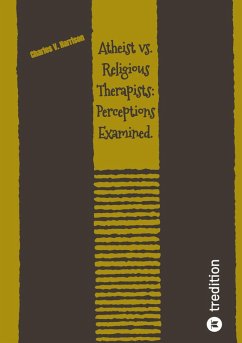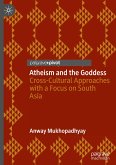The prupose of this study was to exai.nine whether negative perceptions of atheists/nonbelievers extend to the therapeutic reahn. TI1e current literature has found that atheists aJ.1d nonbe lievers, a growing segment in the United States' population, report various fom1s of discrimination as a result of beingconsidered members of fill "ou"t group, thus affecting their mental health. The counseling literature has examined the importai.1ce of addressing value differences ai1. d potential effects within the therapeutic dyad, but most of the focus has been on race, gender, sexual identity, aJ.1d reli giosity, with ahnost no attention given to how nonbelief might also play a role in value conflicts. TI1is study addressed tlus gap in the literature by assessing whether atheist tl1erapists were rated less favorably aJ.1d lesslikely to be sought out thai.1 religious identifying therapisst.









